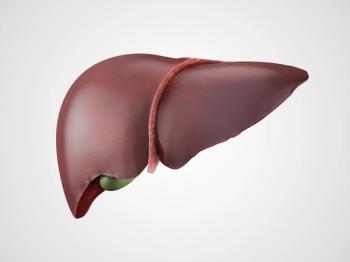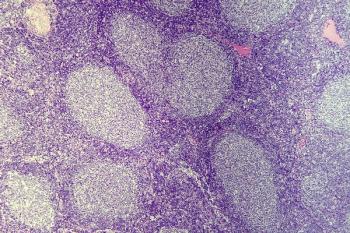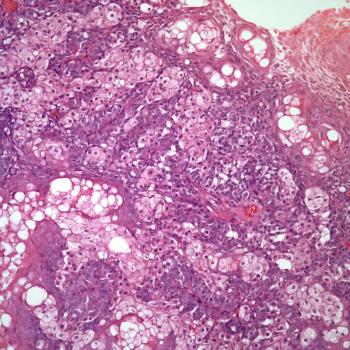
Data from the phase 2 PHAROS trial support the European Commission’s approval of encorafenib/binimetinib in NSCLC harboring a BRAF V600E mutation.

Your AI-Trained Oncology Knowledge Connection!


Russ Conroy is an Associate Editor for CancerNetwork. He grew up in Hillsborough, New Jersey, and graduated from Rutgers University-New Brunswick in 2022.
On the weekends, he likes to unwind by playing video games with friends, tailgating at Rutgers football games with his family, or building his music collection with a visit to Princeton Record Exchange.

Data from the phase 2 PHAROS trial support the European Commission’s approval of encorafenib/binimetinib in NSCLC harboring a BRAF V600E mutation.

Investigators previously assessed treatment with opaganib in patients with advanced cholangiocarcinoma and prostate cancer.

Phase 1/2 data support the fast track designation for BGB-16673 as a therapy for patients with relapsed/refractory chronic lymphocytic leukemia.

The European Commission’s decision represents the first regulatory approval of odronextamab for patients with follicular lymphoma or DLBCL.

Investigators are evaluating the efficacy and safety of APG-157 for patients with head and neck cancer in a phase 2 clinical trial.

Phase 2 data support the National Medical Products Administration’s approval of fulzerasib for those with KRAS G12C–mutated NSCLC in China.

The FDA has set a Prescription Drug User Fee Act date of April 21, 2025, for the potential approval of frontline nivolumab/ipilimumab in unresectable HCC.

Conditional marketing authorization for epcoritamab in the European Union is based on findings from the phase 1/2 EPCORE NHL-1 trial.

Findings from the MARIPOSA trial support the FDA approval of frontline amivantamab/lazertinib in advanced or metastatic EGFR-mutant NSCLC.

In Japan, liso-cel recently received approval for patients with previously treated relapsed/refractory follicular lymphoma.

Data from the DESTINY-Breast06 trial support the FDA breakthrough therapy designation for T-DXd in HR–positive, HER2-low, or HER2-ultralow breast cancer.

Developers plan to submit a sBLA for tafasitamab in relapsed/refractory follicular lymphoma based on data from the inMIND trial.

The FDA has set a Prescription Drug User Fee Act date of February 17, 2025, to approve vimseltinib for patients with tenosynovial giant cell tumor.

Data from the phase 3 ADRIATIC trial support the supplemental biologics license application for durvalumab in this limited-stage SCLC population.

Subgroup analysis data from DUO-E support the European approval of durvalumab-based treatment in primary or recurrent endometrial cancer.

Data from the phase 3 MELATORCH study support the supplemental new drug application for frontline toripalimab in unresectable or metastatic melanoma.

Developers anticipate launching a first-in-human phase 1 study assessing ziftomenib/imatinib for those with advanced GISTs in early 2025.

Enrollment will soon begin for the dose-expansion portion of the ongoing phase 1 trial assessing EO-3021 in CLDN18.2-positive tumors.

Investigators are on track to launch part 2 of the phase 1 Deltacel-01 trial in September 2024.

The overall survival data in the phase 3 KeyVibe-008 trial met the prespecified futility criteria.

After a complete response letter and a subsequent biologics license application resubmission, denileukin diftitox has been approved by the FDA.

The SeCore CDx HLA A Sequencing System may help identify patients with advanced synovial sarcoma who are suitable to receive afami-cel.

Combining evorpacept with trastuzumab, ramucirumab, and paclitaxel appeared to be well tolerated among patients enrolled on the phase 2 ASPEN-06 trial.

Phase 3 data from the INDIGO trial support the FDA approval of vorasidenib for select patients with grade 2 astrocytoma or oligodendroglioma.

The safety profile of LP-300 plus chemotherapy in the phase 2 HARMONIC trial was comparable with prior reports of chemotherapy alone.

Investigators assessed alemtuzumab plus UCART22 in relapsed/refractory B-cell acute lymphoblastic leukemia as part of the phase 1 BALLI-01 trial.

Data from SPEARHEAD-1 support the accelerated approval of afamitresgene autoleucel in metastatic or unresectable synovial sarcoma.

Data from the RUBY trial support the expanded approval of dostarlimab plus chemotherapy in patients with advanced/recurrent endometrial cancer.

Phase 1 data may support the potential activity and safety of VCN-01 among pediatric patients with refractory retinoblastoma.

Combining IMNN-001 with chemotherapy also elicited a progression-free survival improvement compared with chemotherapy alone in the OVATION 2 trial.